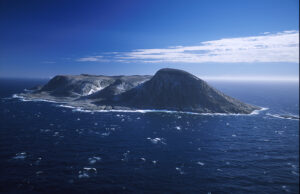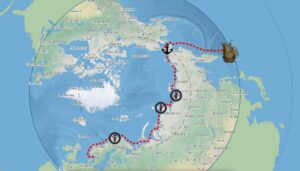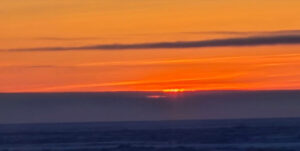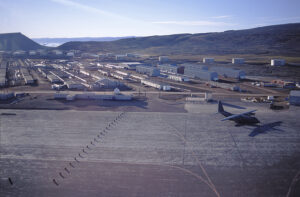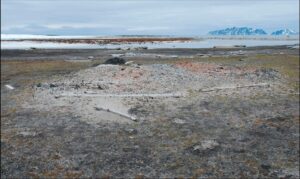In less than a week, Norway’s Borge Ousland and France’s Vincent Colliard will fly north to Resolute Bay, Canada. There, they’ll take a $72,000 charter flight (ouch) to the north end of Ellesmere Island. For the next six or seven weeks, they’ll ski south over the interior ice caps to King Edward Point, the southernmost tip of Ellesmere.
It’s part of Ice Legacy, their multi-year project to cross the world’s 20 largest ice caps. And except for the solo crossing of Antarctica that Ousland, now 62, did back in 1996-97, it will be their longest. The 1,100km will tick off three ice caps on their list — the Grant, the Agassiz, and the Prince of Wales. They will then have only four left to do.
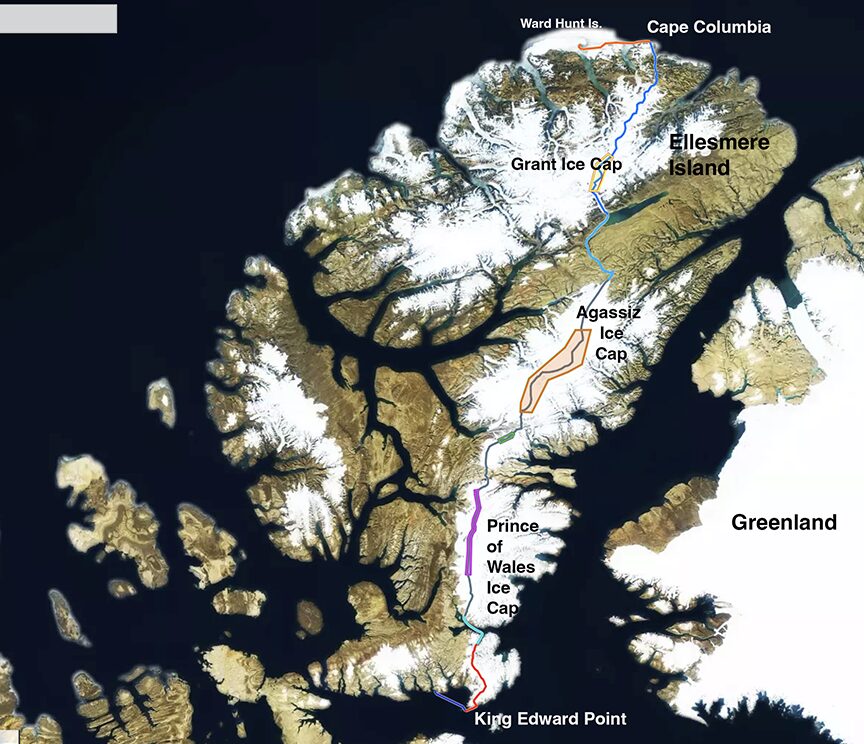
Ousland-Colliard’s route.
As a side project, the pair will attempt to make the first unsupported north-south crossing of Ellesmere, the tenth-largest island in the world. Two other parties did a vertical traverse of Ellesmere — John Dunn and three partners in 1990 and Bernard Voyer and team in 1992. Jon Turk and Erik Boomer skied/kayaked completely around the island in 2011, passing both the northernmost and southernmost points. But all three of these previous expeditions had multiple resupplies. Ousland and Colliard will carry everything with them.
Cape Columbia
The Twin Otter aircraft will land them at Ward Hunt Island, a small satellite off Ellesmere’s north coast. They will ski east to Cape Columbia, Ellesmere’s (and North America’s) northernmost point. At 83˚07′, it is just 760km from the North Pole. The veteran Ousland has touched Ward Hunt Island before, when he and Erling Kagge became the first to ski unsupported to the North Pole from Ellesmere in 1990.
Their route includes brief land sections between the three ice caps, but they will travel mostly on glacier ice. They’ll largely ski under their own power but will carry Beringer ski sails to take occasional advantage of the light Ellesmere winds. Ski sails are more rudimentary than kites and do not need beefy mountaineering skis and boots, like kiting does. You can ski sail and manhaul with the same gear, Ousland told ExplorersWeb.
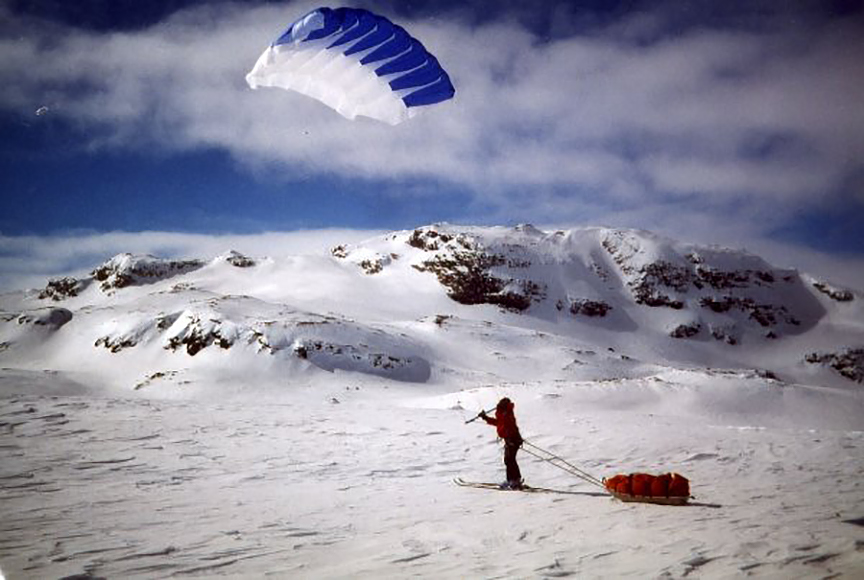
A Beringer ski sail in action. Photo: Beringer
Veteran duo
Ousland’s many accomplishments in both the Arctic and Antarctic put him at the very head of modern polar travelers. Besides his unsupported North Pole trek with Kagge, he skied solo and unsupported to the North Pole from Russia in 1994 and became the first person to cross Antarctica (also ski sailing) in 1996-7. In 2006, he and Mike Horn skied to the North Pole in winter, and in 2019, he and Horn crossed much of the frozen Arctic Ocean, also in the dark. The two were dropped off and picked up by ship.
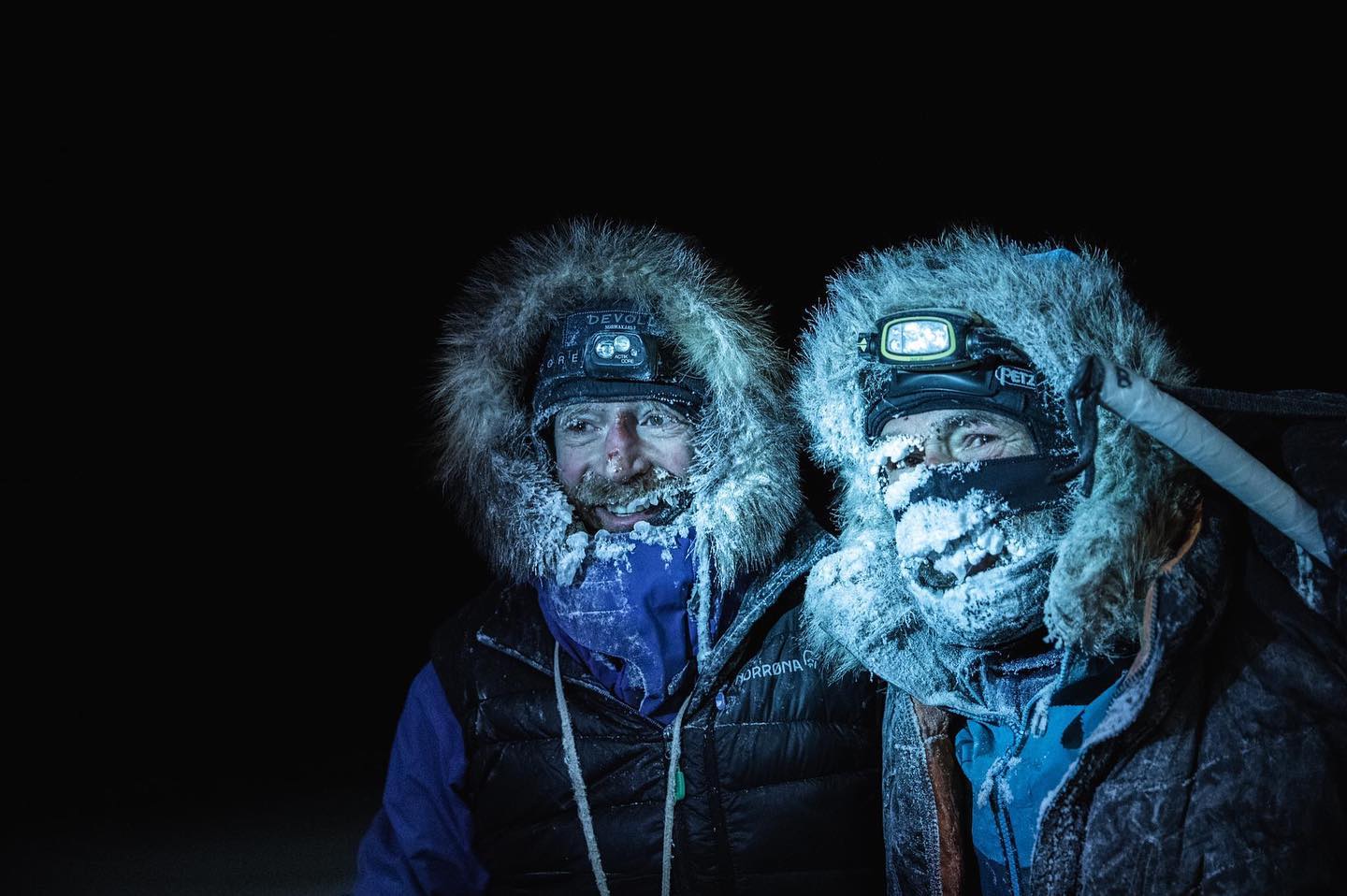
Borge Ousland, left, and Mike Horn in 2019. Photo: Etienne Claret
Although Colliard, 39, can’t match such an unprecedented polar resumé, the pair have completed 10 of the 13 ice caps together. (Ousland did Antarctica, Greenland, and Iceland on his own.) Last year, Colliard broke Christian Eide’s long-standing speed record from Hercules Inlet to the South Pole, covering 1,130km in 22 days, 6 hours, and 8 minutes.
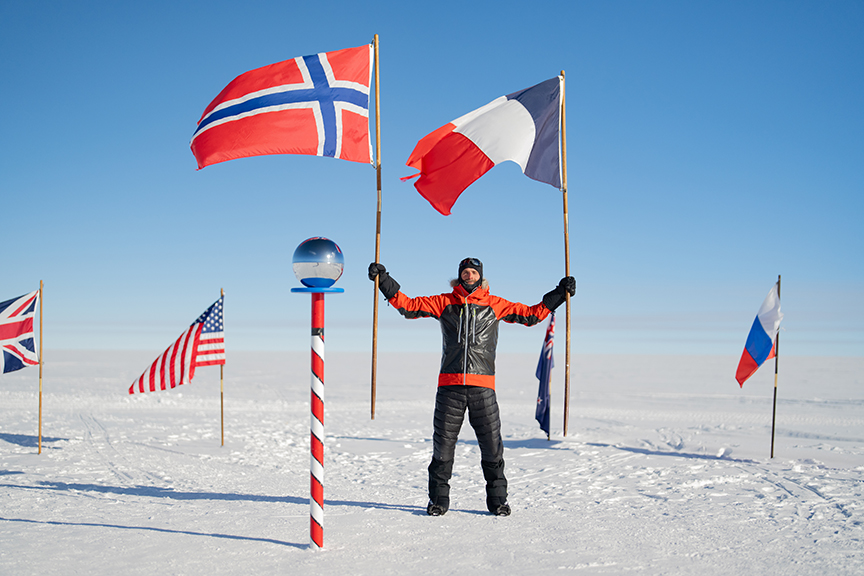
Vince Colliard at the South Pole. Photo: Vince Colliard

